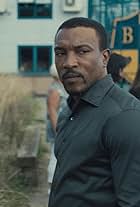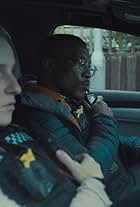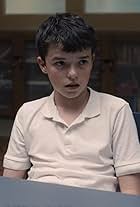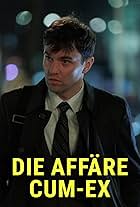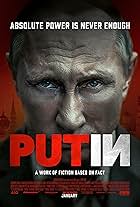gaga75
Jan. 2000 ist beigetreten
Willkommen auf neuen Profil
Wir arbeiten immer noch daran, einige Profilfunktionen zu aktualisieren. Um die Kennzeichnungen, Bewertungsaufschlüsselungen und Umfragen zu diesem Profil zu sehen, rufe bitte vorherige Version auf.
Bewertungen1890
Bewertung von gaga75
Rezensionen10
Bewertung von gaga75
The movie focuses on a group of aimless youths with bleak prospects and their role in the riots against the asylum seekers' house. The other thread shows a local politician, who is the father of one of the depicted youths and who is being left alone by his superiors.
Although the group's inner dynamics and their frustrations are dealt with in a very sensitive way, the action is extremely slow paced and not very emotionally engaging.
After having watched the movie, I wanted to know what really happened that night in Rostock Lichtenhagen. So I turned to the Wikipedia article covering the infamous event. And there it was: the real thriller!
I will not reveal my conclusions, but there were very strange things going on the federal level, very strange things said by the heads of the then ruling CDU, very strange directions to the police. Read it yourself, you will hardly believe it!
Let me give you just one example: in the aftermath, there was only one member of the two big parties CDU and SPD (the latter ruling in the state of Mecklenburg-Vorpommern) truly condemning the riots as well as the failure of the government, Knut Degner. The next day he was released from office (!).
So the real thriller happened not in Rostock on the streets but in Bonn and Schwerin behind closed doors. The movie should have taken this in to account. Or maybe a documentary would have been genre more appropriate.
Although the group's inner dynamics and their frustrations are dealt with in a very sensitive way, the action is extremely slow paced and not very emotionally engaging.
After having watched the movie, I wanted to know what really happened that night in Rostock Lichtenhagen. So I turned to the Wikipedia article covering the infamous event. And there it was: the real thriller!
I will not reveal my conclusions, but there were very strange things going on the federal level, very strange things said by the heads of the then ruling CDU, very strange directions to the police. Read it yourself, you will hardly believe it!
Let me give you just one example: in the aftermath, there was only one member of the two big parties CDU and SPD (the latter ruling in the state of Mecklenburg-Vorpommern) truly condemning the riots as well as the failure of the government, Knut Degner. The next day he was released from office (!).
So the real thriller happened not in Rostock on the streets but in Bonn and Schwerin behind closed doors. The movie should have taken this in to account. Or maybe a documentary would have been genre more appropriate.
Svetlana Geier, the protagonist of this documentary, is known for her praised re-interpretations of dostojevskys books from Russian to German. Thus she has very interesting things to say about language, literature and life. Moreover, growing up in Kiev she witnessed, how her family and friends fell victim to the stalinist purge and the German occupation, while she herself was one of the very few eastern europeans actually being promoted by the Nazi regime with a scholarship in Germany.
Unfortunately, this great material is presented in an unstructured an ill-paced manner. The only narrative frame is the historic one of the 30s and 40s. Everything else is shown in an arbitrary order. This is tolerable as long as the material is interesting enough to carry itself.
But what's really annoying is the passages, where we see here speaking in Russian to an ukrainian audience. Without subtitles. For minutes. Or we see here looking out of a train's or a taxi's window an speaking to herself in Russian. Without explanation or translation. For minutes. These parts, in total at least 30 minutes, convey hardly any information. In addition, the director very often fails finding pictures which would illustrate the narrated appropriately.
So if this documentary was re-edited, brought into a coherent shape and freed of all the superfluous crap, it would be quite a good one.
Unfortunately, this great material is presented in an unstructured an ill-paced manner. The only narrative frame is the historic one of the 30s and 40s. Everything else is shown in an arbitrary order. This is tolerable as long as the material is interesting enough to carry itself.
But what's really annoying is the passages, where we see here speaking in Russian to an ukrainian audience. Without subtitles. For minutes. Or we see here looking out of a train's or a taxi's window an speaking to herself in Russian. Without explanation or translation. For minutes. These parts, in total at least 30 minutes, convey hardly any information. In addition, the director very often fails finding pictures which would illustrate the narrated appropriately.
So if this documentary was re-edited, brought into a coherent shape and freed of all the superfluous crap, it would be quite a good one.



